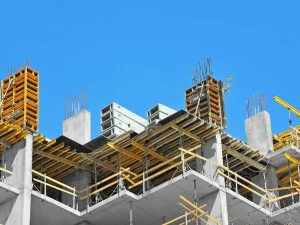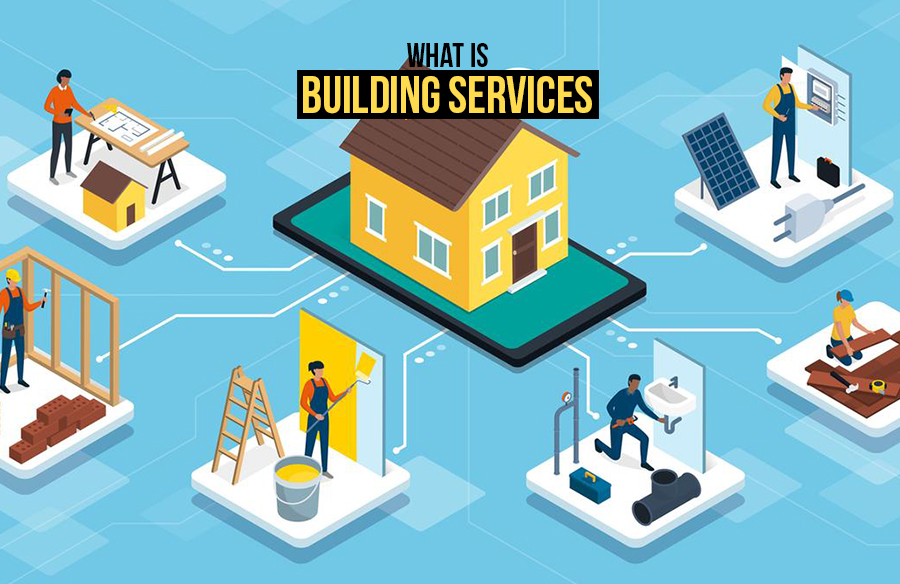Understanding the Meaning of Building Services
Introduction
Building services play a crucial role in the construction and operation of any structure. From residential homes to commercial complexes, these services encompass various systems and technologies that ensure the comfort, safety, and functionality of a building. In this article, we will delve into the meaning of building services, exploring their components, functions, and importance in creating sustainable and efficient structures.
What are Building Services?
Building services refer to the integrated systems and components that provide essential amenities and utilities within a building. These services include electrical, mechanical, plumbing, heating, ventilation, and air conditioning (HVAC), fire protection, and lighting systems. They are responsible for maintaining a comfortable environment, delivering power and water supply, managing waste disposal, promoting safety measures, and enabling effective communication within the building.
The Components of Building Services
1. Electrical Systems
Electrical systems are an integral part of building services, supplying power for lighting, appliances, equipment, and other electrical devices. They consist of distribution panels, wiring, switches, sockets, and electrical fixtures. The design and installation of electrical systems should comply with safety standards and local regulations to prevent electrical hazards and ensure reliable power distribution throughout the building.
2. Mechanical Systems
Mechanical systems encompass a range of components that provide heating, cooling, and ventilation within a building. These systems include boilers, chillers, pumps, fans, ductwork, and control systems. Heating systems ensure the building’s interior remains warm during colder months, while cooling systems regulate the temperature in hot climates. Ventilation systems supply fresh air and remove pollutants, ensuring a healthy indoor environment.
3. Plumbing Systems
Plumbing systems are responsible for water supply, drainage, and waste disposal within a building. They comprise pipes, fittings, valves, fixtures, and pumps. Water supply systems ensure the availability of clean water for various purposes such as drinking, bathing, and cleaning. Drainage systems remove wastewater and sewage from the building, connecting it to the municipal sewer system or septic tank. Plumbing systems also include fire sprinkler systems that provide fire protection.
4. HVAC Systems
Heating, ventilation, and air conditioning (HVAC) systems are essential for maintaining a comfortable indoor environment. These systems regulate temperature, humidity, and air quality within a building. HVAC systems include heating units, air conditioners, air handlers, ductwork, and controls. They ensure that occupants have optimal thermal comfort while also improving energy efficiency and reducing environmental impact.

5. Fire Protection Systems
Fire protection systems are crucial for ensuring the safety of occupants and protecting the building from fire hazards. These systems include fire alarms, smoke detectors, fire extinguishers, sprinkler systems, and emergency lighting. Fire protection systems are designed to detect fires early, alert occupants, and suppress or control the spread of flames, providing valuable time for evacuation and minimizing property damage.
6. Lighting Systems
Lighting systems contribute to the functionality and ambiance of a building, illuminating various spaces for different purposes. They include artificial lighting fixtures, lamps, control systems, and natural lighting elements such as windows or skylights. Proper lighting design enhances productivity, safety, and visual comfort, while energy-efficient solutions reduce electricity consumption and promote sustainability.
The Importance of Building Services
1. Comfort and Well-being
Building services are essential for creating a comfortable and healthy indoor environment. Proper heating, cooling, ventilation, and lighting systems contribute to occupant comfort and well-being. They ensure that the building maintains suitable temperatures, optimal air quality, and adequate lighting levels, enhancing productivity and overall satisfaction.
2. Safety and Security
Building services, particularly fire protection systems, play a critical role in ensuring the safety and security of occupants. Fire alarms, sprinkler systems, and emergency lighting are designed to detect and respond to fire incidents promptly, providing early warnings and facilitating effective evacuation procedures. Additionally, security systems, including access control and surveillance, contribute to the overall safety of the building and its occupants.
3. Energy Efficiency and Sustainability
Building services have a significant impact on energy consumption and environmental sustainability. Efficient HVAC systems, lighting controls, and water-saving plumbing fixtures reduce energy and water waste, resulting in lower utility costs and a smaller carbon footprint. Incorporating renewable energy sources, such as solar panels or geothermal systems, further enhances the sustainability of building services.
4. Compliance with Regulations
Building services must adhere to various regulations and standards to ensure the safety and functionality of structures. Electrical systems need to comply with electrical codes, mechanical systems must meet mechanical engineering standards, and plumbing systems must follow plumbing codes. Adhering to these regulations ensures that the building operates safely and efficiently, and also avoids potential legal and financial consequences. https://nazbuild.com.au/

5. Maintenance and Longevity
Properly designed and installed building services contribute to the longevity of a building by reducing wear and tear on its components. Regular maintenance and servicing of electrical, mechanical, plumbing, and HVAC systems are necessary to identify and address issues before they escalate. Routine inspections and preventive maintenance prolong the lifespan of building services, minimizing disruptions and expensive repairs in the long run.
Conclusion
Building services encompass a wide range of systems and technologies that are vital for the functionality, safety, and sustainability of any structure. From electrical and mechanical systems to plumbing, HVAC, fire protection, and lighting systems, these components ensure occupant comfort, well-being, and security. Building services also contribute to energy efficiency, compliance with regulations, and the longevity of a building. By understanding the meaning and importance of building services, architects, engineers, and building owners can create sustainable and efficient structures that meet the needs of their occupants for years to come.

